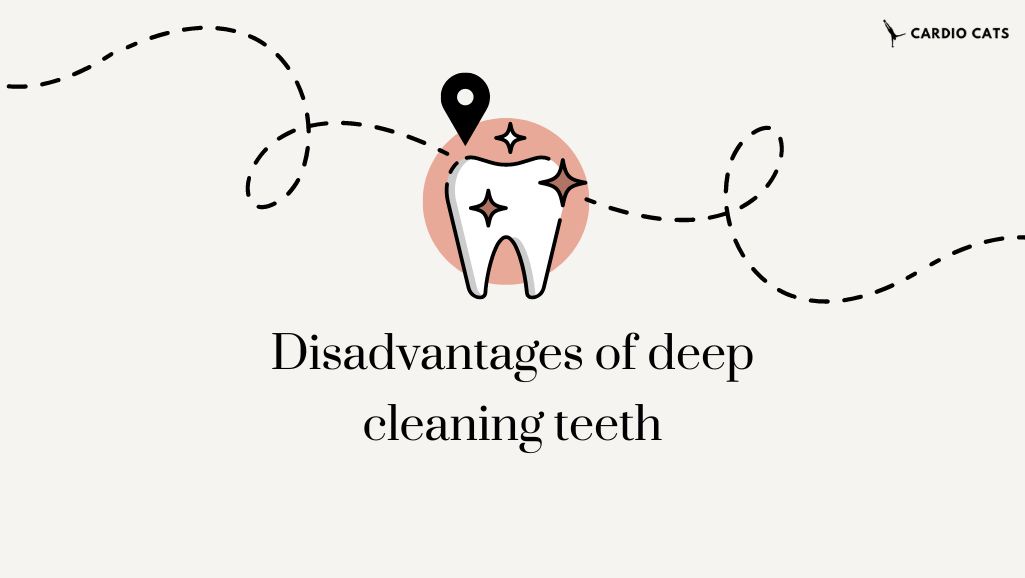Maintaining oral hygiene is crucial for a healthy and confident smile. Deep cleaning teeth, also known as scaling and root planing, is a dental procedure often recommended to combat gum disease and maintain optimal oral health. While deep cleaning offers several benefits, it's essential to recognize that like any medical procedure, it comes with its set of disadvantages. In this comprehensive article, we'll dive into the various drawbacks associated with deep cleaning teeth, shedding light on important aspects that you should consider before undergoing the procedure.
Disadvantages of Deep Cleaning Teeth: A Closer Look
1. Increased Sensitivity
One of the prominent disadvantages of deep cleaning teeth is the potential increase in dental sensitivity. The procedure involves the removal of plaque and tartar from below the gumline, which can expose the sensitive roots of the teeth. This exposure to external stimuli, such as hot or cold beverages, may lead to heightened sensitivity and discomfort for some individuals. While the sensitivity is usually temporary, it can impact daily activities and dietary choices.
2. Gum Irritation and Discomfort
Deep cleaning teeth involves thorough cleaning of the gums and the tooth roots. This intensive cleaning process may result in gum irritation and discomfort. The gums might become tender and swollen post-procedure, causing discomfort while eating or speaking. It's important to note that this irritation is often a transient side effect, but individuals with existing gum sensitivities might experience more pronounced discomfort.
3. Risk of Infection
Although deep cleaning is performed to eliminate bacteria and prevent gum disease, there is a potential risk of infection associated with the procedure itself. The instruments used during scaling and root planing could inadvertently introduce bacteria into the bloodstream through the inflamed gums. While the risk is relatively low, it's a factor to consider, especially for individuals with compromised immune systems.
4. Root Surface Damage
Root planing, a part of the deep cleaning process, involves smoothing the tooth roots to discourage the accumulation of plaque and tartar. However, if not performed skillfully, this procedure can lead to inadvertent damage to the tooth's delicate root surfaces. Such damage can result in gum recession, increased sensitivity, and other long-term dental issues.
5. Uneven Appearance of Teeth
Deep cleaning teeth might lead to an uneven appearance of the teeth. As the procedure aims to eliminate tartar and plaque buildup, it can also remove a thin layer of enamel in the process. This can lead to uneven tooth surfaces and, in some cases, minor cosmetic changes that affect the smile's aesthetics. It's crucial to discuss such potential outcomes with your dentist before undergoing the procedure.
6. Post-Procedure Discomfort
Recovery from deep cleaning can vary from person to person. Some individuals might experience mild discomfort, while others could face more substantial pain during the healing process. This discomfort could include soreness in the gums and jaw, making it challenging to eat or speak comfortably for a few days post-procedure.
7. Financial Considerations
While the cost of deep cleaning teeth can vary based on factors like location and the severity of the condition, it's generally more expensive than regular dental cleanings. For individuals without dental insurance, this added cost might be a significant factor to consider, especially when balancing the benefits and drawbacks of the procedure.
In Conclusion
Deep cleaning teeth, despite its advantages in promoting gum health and preventing gum disease, comes with its share of disadvantages. From increased sensitivity and gum irritation to potential risks of infection and root surface damage, individuals considering this procedure must weigh its pros and cons. It's crucial to consult with a qualified dentist who can provide personalized insights based on your dental history and needs. Remember, maintaining good oral hygiene through regular brushing, flossing, and professional cleanings remains a cornerstone of preventing the need for more intensive procedures like deep cleaning.


No comments yet